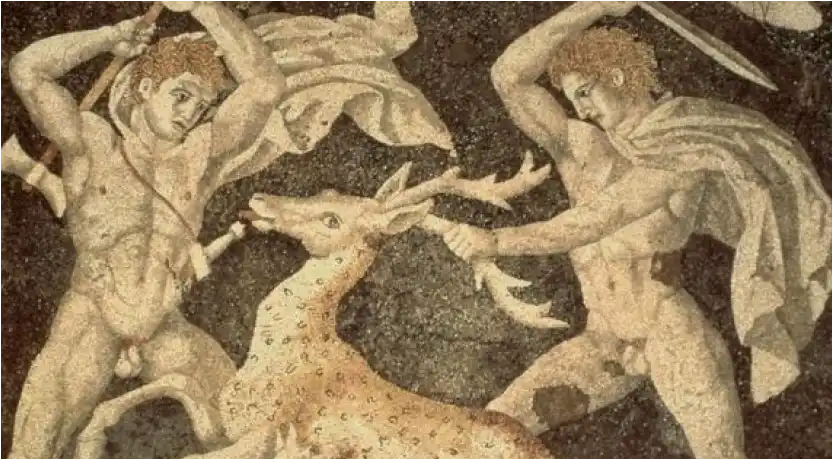One of the most enduring and contentious questions in ancient history is the matter of identity: were the ancient Macedonians Greek? The debate is complex, fueled by a mix of ancient biases and modern political sensitivities. While southern Greeks like Demosthenes often derided them as ‘barbarians,’ the evidence from their language, religion, and material culture points to a much more interconnected and fundamentally Greek identity, albeit one that existed on the periphery of the classical Hellenic world.
Table of Contents
🗣️ The Macedonian Language: Dialect or Different Tongue?
The nature of the ancient Macedonian language is central to the debate. No literary works in the dialect survive, but evidence from inscriptions, such as the Pella curse tablet, and place names strongly suggests that it was a rugged, Doric-like dialect of Greek. While it may have sounded strange to an Athenian ear, it was mutually intelligible with other Greek dialects. The Macedonian elite, however, clearly adopted the standard Attic Greek for all official purposes, which became the administrative language of Alexander’s empire.
🏛️ Shared Gods and Sanctuaries
In matters of religion, the Macedonians were undoubtedly part of the Greek world. They worshipped the same twelve Olympian gods as other Greeks, with Zeus, Heracles, and Dionysus holding particularly important places in their state cults. Furthermore, from the 5th century BC onward, Macedonian kings were accepted as competitors in the Olympic Games, a sacred festival that was exclusively for Greeks. This participation was a clear and unambiguous recognition of their Hellenic identity by the religious authorities of southern Greece.
👑 Kings vs. Polis: A Different Political Model
Much of the southern Greek suspicion of Macedonia stemmed from its political structure. The Macedonians were not a collection of independent city-states (poleis) like Athens or Sparta; they were a tribal kingdom ruled by a powerful monarch. This monarchical system was seen as primitive and tyrannical by many democratic Greeks. However, the Macedonian kingdom was not an absolute monarchy. The king ruled with the consent of his noble ‘Companions’ and an assembly of the army, institutions that, while different from a polis, were part of a shared Indo-European heritage. Their political system was different, but it did not make them non-Greek.
Roisman, Joseph, and Ian Worthington, editors. A Companion to Ancient Macedonia. Wiley-Blackwell, 2010.
More Topics
- Curses: The History of the Evil Eye and Binding Magic
- Magical Plants: A Witch’s Garden of Herbs and Poisons
- Roman Magic: Curses, the Strix, and Everyday Protection
- Circe: The Greek Sorceress of Transformation and Myth
- Greek Magic: Hecate’s Power, Oracles, and Enchantresses
- Japanese Magic: Yōkai, Onmyōdō, and Supernatural Folklore
- Empress Chen Jiao: The Royal Scandal of Witchcraft in Han China

